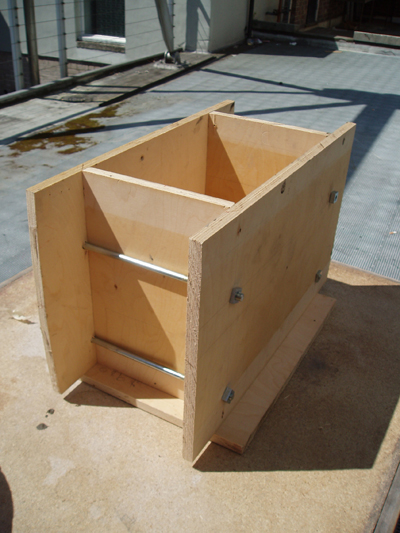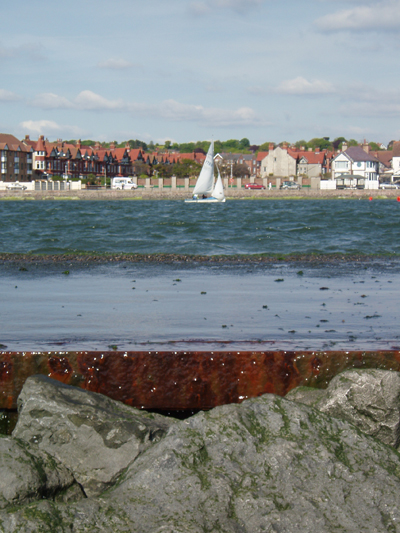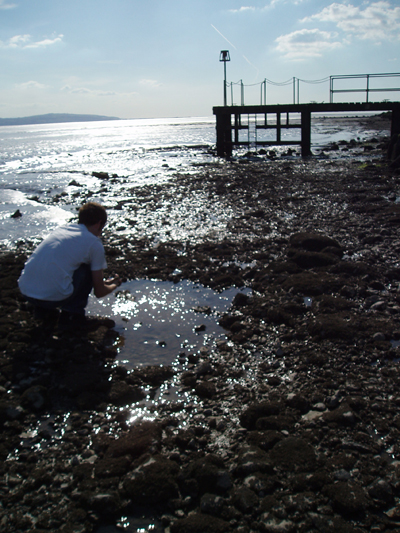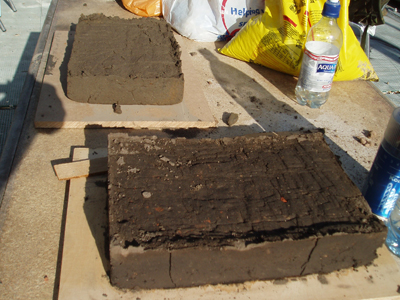
Well, today I received the call which sorted out my summer! From Monday I'll be working in Liverpool at an architecture practice. I prefer not to say which one, to keep things seperate, but rest assured that I'm happy with the position...
It's an ideal end to my first year as an architecture student. Some great projects, a lot of new friends, a research mission to India, and full time employment. Makes me wonder what next year will bring! Hopefully by then I'll have more of a clue about the mechanics of the construction industry, and might even have a garden shed or kitchen extension in my portfolio :D.
To keep up with the graphic side of things, here are some shots from our adventures so far in creating a rammed earth wall detail. Images by Caroline and David.
Formwork for rammed earth:
West Kirby beach - a short journey by train from Liverpool city centre, where we collected clay:
The muddy job:
Two prototype rammed earth slabs. We're still experimenting to find the right consistency. Still seems a bit wobbly!
6 Comments
are you sure thats clay and not just mud?
errm...rammed earth ain't the same as adobe blocks, you do know that, don't you?!?
Yes,we're pretty sure it's clay. Has the right consistency, even though it looks grey. Probably has some other stuff mixed in there :S.
And yeah, we're just making slabs at the moment to test consistency. Eventually will do a 300mm high version, to represent the top portion of a wall in a 1:2 detail.
We're using this book - http://www.amazon.com/exec/obidos/ASIN/1853392251/qid%3D1116316334/sr%3D11-1/ref%3Dsr%5F11%5F1/002-0702564-1590453 - as reference. If you have any other recommendations, let me know...
hi
Came across you searching on the internet...
I'm a researcher at Durham uni looking at the decay and repair of old rammed earth buildings, but I'm also looking at existing rammed earth structures to see how they are doing in the UK. We've got our own rammed earth walls down here in the labs which we are testing, just wondering what you are doing with the rammed earth, if you need any help getting the mix and the amount of water right, we can probably help, and if you've got too much clay it will shrink and crack once it dries out. Anyhow I'm at www.dur.ac.uk/p.a.jaquin , take a look if you like.
Paul
Hi drs
Your site to collect "clay" worries me as salt is the last thing you want in a Rammed Earth structure, or any any Earth Construction for that matter. I would suggest you take your next test batch from a bit further inland where it's devoid of salt. Clay is only a minor part of a Rammed Earth Mix, sandy loam/small gravel make up most of it. The Drop Test is probably your best bet to see if the Mix is suitable - roll the mix into a ball, about the size of a cricket ball, hold your hand out straight at shoulder height and drop the mix onto a hard surface. If the ball shatters your mix is about right, but if stays a ball or only breaks partially, you have too much clay.
I don't know if you want to remain totally environmentally friendly, but the addition of approx. 5% Portland Cement will make the walls much more durable and isn't that the name of the game, as is raising the footings to say 6 inches above ground level. The "Rammed Earth House" would be an extremely useful book for your library and the following sites would also be another source of information and help. https://www.ebaa.asn.au/ https://www.ebaa.asn.au/links-2/
Hi drs
I forgot to mention my Father was Liverpool Irish from Bootle with the lovely red hair to boot, so I'll have to look after you. I have an extensive Earth Building Library so any questions I'm happy to assist.
Fraternally
Block this user
Are you sure you want to block this user and hide all related comments throughout the site?
Archinect
This is your first comment on Archinect. Your comment will be visible once approved.